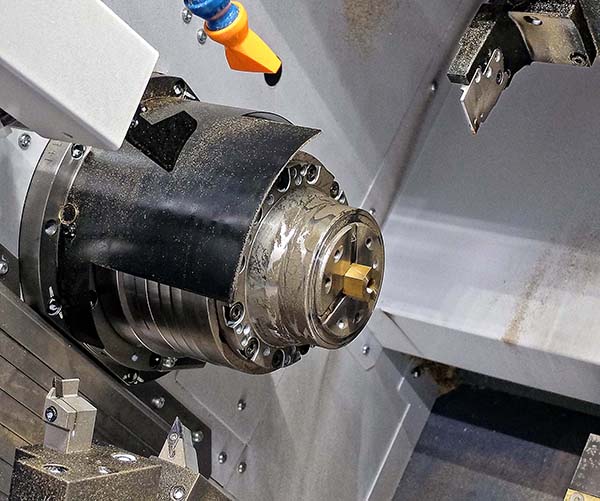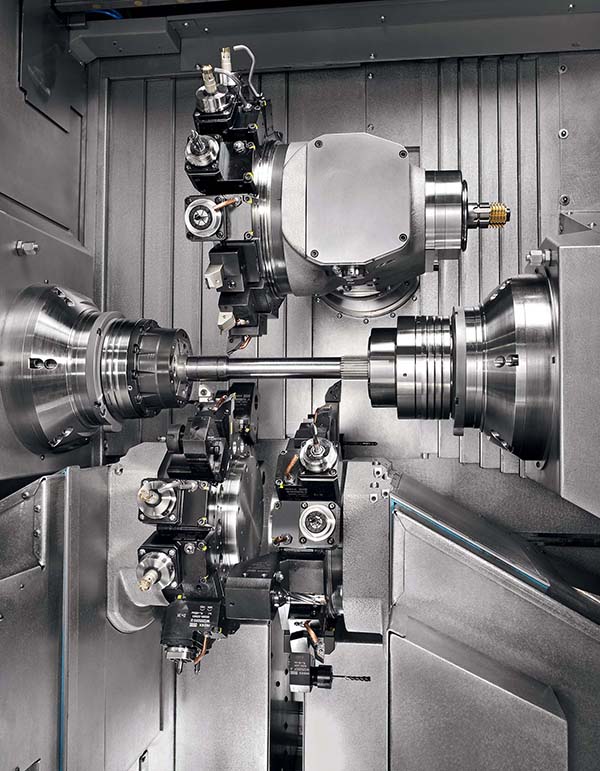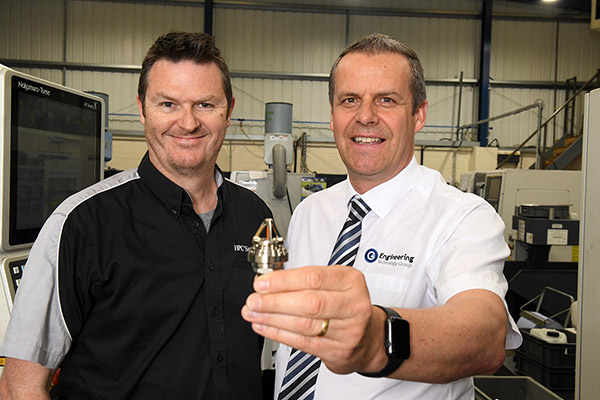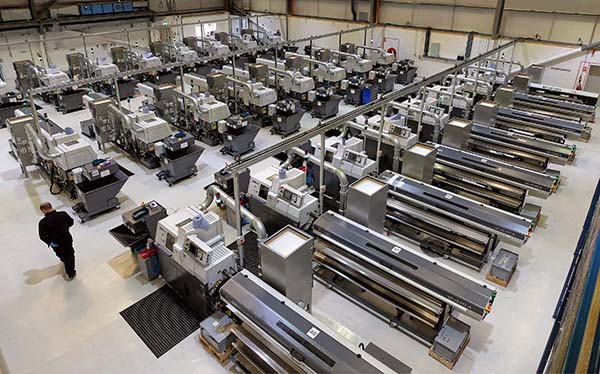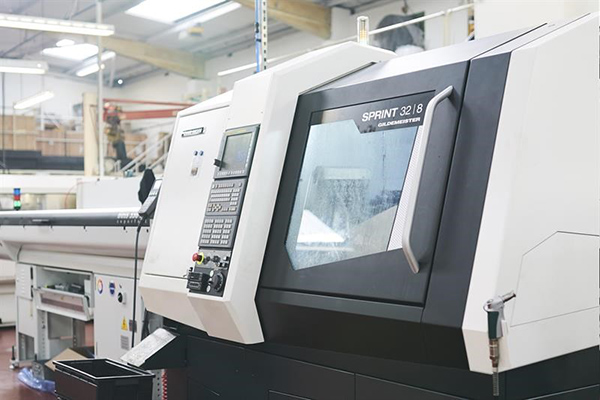Installation by Citizen Machinery of a fixed-head Miyano BNE51-MSY twin-spindle, twin-turret turning centre at electrical wiring conduit manufacturer ABB Cable Management Product, Coleshill, is heralding a fundamental change in the way the company turn-mills its cable end fittings.

Cycle time savings of up to 70% with more to come, reductions in manufacturing cost, scrap and returns, and elimination of the need to outsource 10% of production to subcontractors, will combine to amortise the cost of the Miyano well within 18 months of its installation in January 2019. Manufacturing unit manager Andrew Fellows describes this payback time on a major item of capital expenditure as “brilliant”.
“In the first two weeks of the Miyano arriving, we transferred on to the new machine the manufacture of four fast-moving products, all of which benefitted from drilling on both end faces simultaneously at the main and counter spindles,” says Felllows. “Average cycle time saving was 59%, while the largest reduction was 70% in the case of a conduit fitting that previously required 133 seconds to produce. The turn-mill cycle now takes 40 seconds on the Miyano.”
Senior operator Dan Gardner says: “We’ve only taken advantage so far of cutting with two tools at a time, but the superimposition function in the Mitsubishi M730VS control, coupled with Y-axis movement of the upper turret and X-axis travel of the counter spindle, allows three tools to be in cut at the same time.
“After five days’ training from Citizen, both on- and off-site, we carried out a time study on a complex fitting that will see an 80% reduction in cycle time, from 230 to 46 seconds.”
For further information www.citizenmachinery.co.uk






